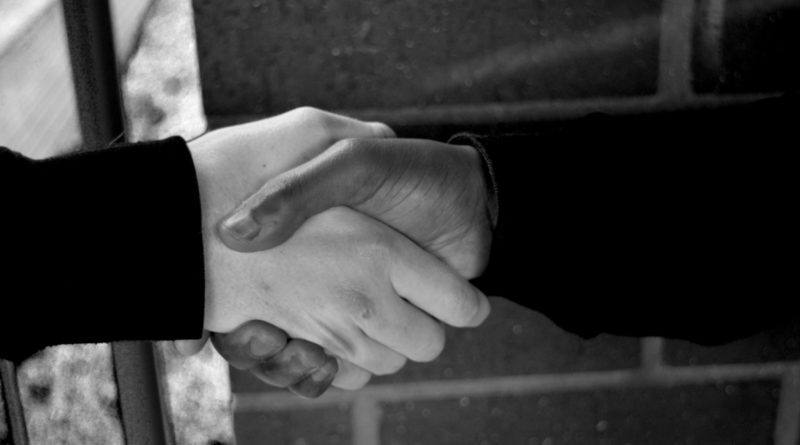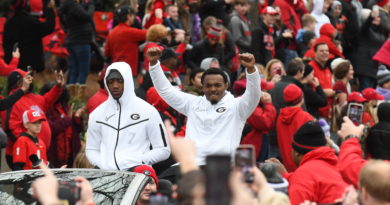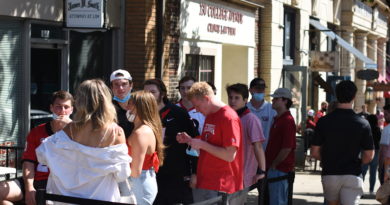Why The “N” Word Is a No-No
The conversation has taken place previously, but it needs to happen again and again and again and again. And let me be blunt about how that conversation must conclude: the “n” word must be extinguished from the vocabulary of not only white people and non-black people of color but black people as well.
First, the word was used as a way of not only putting down my ancestors but also to dehumanize them. When slaves arrived in the Americas, their names may have been hard to pronounce. Not that their “owners” (how can one ‘own’ a human being?) cared to learn them, so their names were changed to white, easily pronounced names. For example, the “n” word was placed in front of their new names to demonstrate that you were talking about a black John and not a white one.
The 1857 case of Dred Scott v. Sandford, in which an escaped slave went to the Supreme Court to fight for his freedom only to be declared the defendant’s property, most certainly did not help. It only further supported and enabled the use of the word by enforcing the idea that we are inferior.
The slur further demeaned my ancestors because the term came from the Spanish word “negro” meaning black, further alienating them. My ancestors were categorized and abhorred by the “n” word for not only 250 years of slavery in the US, but also for every year thereafter.
Following the abolition of slavery in the United States, the Civil Rights Era was laced with the “n” word in every derogatory way. The slur was not only used against black people, but it also shamed those who supported blacks calling them “n—er lovers.”
When four college students staged a sit-in at a restaurant to protest the famous 1896 Plessy v. Ferguson “separate but equal” ruling, they were greeted with aggression in the form of hot coffee, mustard, ketchup, cigarette burns, and the “n” word.
And here we are in 2018 after Harley Barber, a former University of Alabama student, posted an Instagram video saying, “We do not waste water because of the poor people in Syria. We don’t waste water. I love how I act like I love black people because I f—ing hate n—–s so that’s really interesting, but I just saved the f—ing n—–s by shutting that water off.” The school expelled the student the day after the video went viral on social media.
If these situations are still happening, can we associate the “n” word with anything but negativity and slander?
The more modern use of the word is even more perplexing. This new version of the word is not even pronounced the same way as the old version. Many black people have a different dialect than white people, so when some black people say it, it ends with an “a” rather than an “er” forming the modern version.
The problem with the modern form of the “n” word is that it is commercialized. The word is used in popular rap music, making it available for the entire world. Thus it is also used daily in the vocabulary of black people. Even white people. A 2017 study by Media Behaviors & Influence shows that white people compose the majority of hip-hop listeners. How is it that in a matter of a few decades, a word that was associated with so much hate became so common and accepted?
One argument is that the word has been “desensitized,” meaning that it has been made less sensitive. Here is the complicated part: is a white person or non-black person of color saying the word justified, or is this behavior racist? The word has become so desensitized that more and more white people and non-black people of color feel comfortable saying it, and therefore more black people, mostly young ones, are accepting it.
This unfortunate acceptance of the “n” word’s new form is that people remain under-educated about its dark history.
We tell white people and non-black people of color that the word is racist and unacceptable, but we don’t teach them why. Too often we, as black people, don’t even know the history. Because of the continuing controversy surrounding the word, people may avoid the conversation altogether.
Unless you are taught by your parents, you will not learn much about the word in school. The closest you may get to learning about the word is during middle school curriculum about the civil rights movement and slavery. When I was in school, we discussed that the word was not acceptable to use, and that’s it.
The lack of black teachers in my history classes was also probably a reason for the word not being taught. In my experience, most of my white teachers did not feel comfortable talking to a class about a word that is notoriously racist, especially in my majority black classes.
Thus society is stuck in a vicious cycle. How can we expect white people to stop using the term when fewer and fewer black people can provide an educated argument for why the word is racist? The use of the word in black vocabulary of black people only enforces the idea that it is acceptable for all people to use it. The more we use the word, the more the word will be used by others.
We must also recognize that the word is not a generational issue as it affects the entire population. Who can say it? What does it mean when they say it? Why can’t I say it? Why can he say it? Those are just a few questions that anyone who encounters the word can ask.
That being said, black people should not avoid saying the word just because we do not want white people or non-black people of color saying it. Rather, the word is just disrespectful to ourselves and our ancestors.
If we continue to use the word in everyday conversations, what was the purpose of our ancestors fighting against it?




